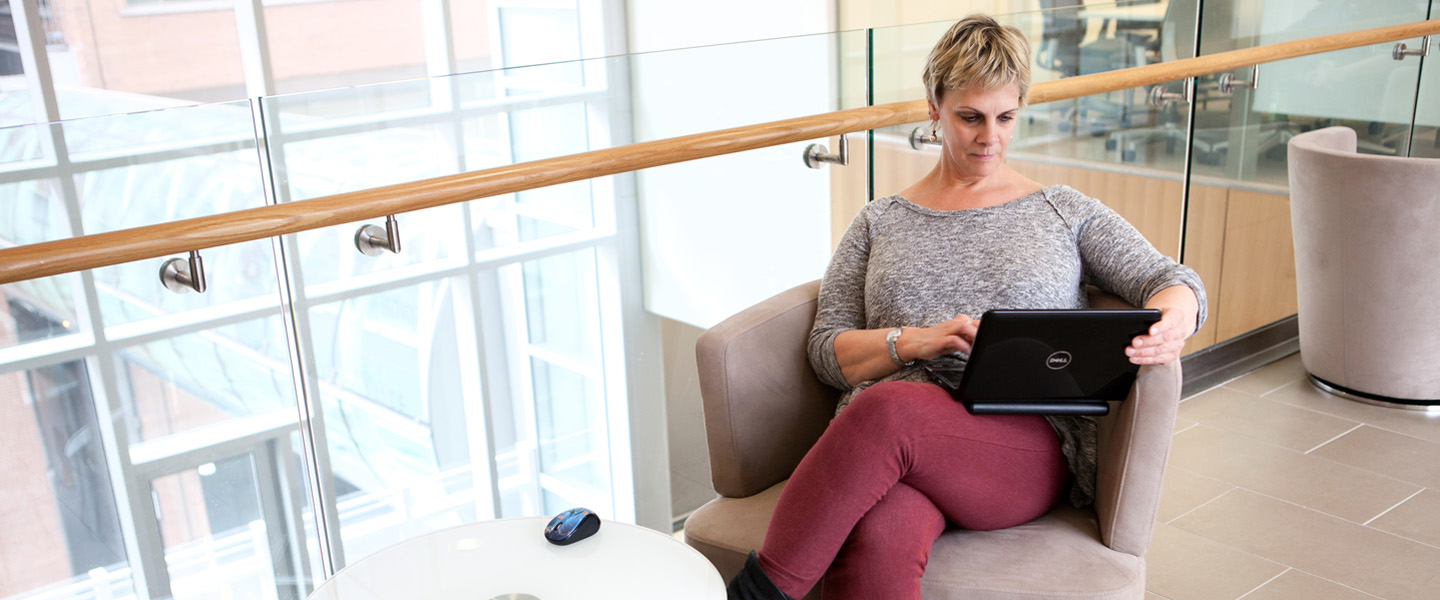
Dr. Flora Matheson leads a Gambling Research Exchange Ontario Knowledge HUB specializing in research on complexity and problem gambling. (Photo by Katie Cooper)
By Greg Winson
Problem gambling affects one in nine Ontarians over their lifetimes. The prevalence is even higher among those experiencing homelessness and housing instability. However, treatment programs for gambling aren’t always available or are not well integrated with other services.
A Gambling Research Exchange Ontario Knowledge Hub established within the Centre for Urban Health Solutions has set out to focus on the complex needs of homeless gamblers.
The genesis for this knowledge hub began four years ago when Dr. Flora Matheson collaborated with the Good Shepherd Ministries to study the links between problem gambling and homelessness. The study revealed that 35 per cent of homeless men had lifetime pathological or problem gambling, compared to 8 per cent in the general population.
Dr. Matheson then studied the link between problem gambling and homelessness through qualitative interviews with 30 men. Dr. Matheson’s research showed a connection with factors including substance use, chronic illness and childhood trauma.
“Many people who started gambling in their youth continue as adults,” said Dr. Matheson. “They gamble to make ends meet, or for self-esteem.”
Despite the identified need, few services were available for problem gambling. Family doctors and service providers often don’t understand problem gambling and are unsure where to refer them to.
| Did you know? More than 1 million Ontarians have been negatively affected by someone else’s gambling (Responsible Gambling Council, 2013) |
Dr. Matheson and her team have partnered with the Problem Gambling Institute of Ontario at the Centre for Addiction and Mental Health and Good Shepherd Ministries to develop a manual for service providers to enhance care for their clients with gambling problems. It is set to be launched later this year.
“It’s really to help service providers start a conversation about problem gambling with their clients and to provide them with screening tools,” said Dr. Matheson.
Patients with complex issues need an integrated approach to their care – having multiple treatment services in one place is important.
“Travelling around the city for different services can be hard, said Dr. Matheson. “Even a subway token can be expensive for someone experiencing poverty.”
Through the collaboration between Good Shepherd Ministries and Dr. Matheson and her team, Good Shepherd is implementing a pilot project of services to support clients experiencing problem gambling and homelessness. Services provided will include individual counselling, case management focusing on the specific needs of the client and a life-skills group focusing on issues related to gambling. Dr. Matheson’s team will evaluate this program which was funded through the Local Poverty Reduction Fund of the Ministry of Housing.
About St. Michael’s Hospital
St. Michael’s Hospital provides compassionate care to all who enter its doors. The hospital also provides outstanding medical education to future health care professionals in 27 academic disciplines. Critical care and trauma, heart disease, neurosurgery, diabetes, cancer care, care of the homeless and global health are among the hospital’s recognized areas of expertise. Through the Keenan Research Centre and the Li Ka Shing International Healthcare Education Centre, which make up the Li Ka Shing Knowledge Institute, research and education at St. Michael’s Hospital are recognized and make an impact around the world. Founded in 1892, the hospital is fully affiliated with the University of Toronto.
